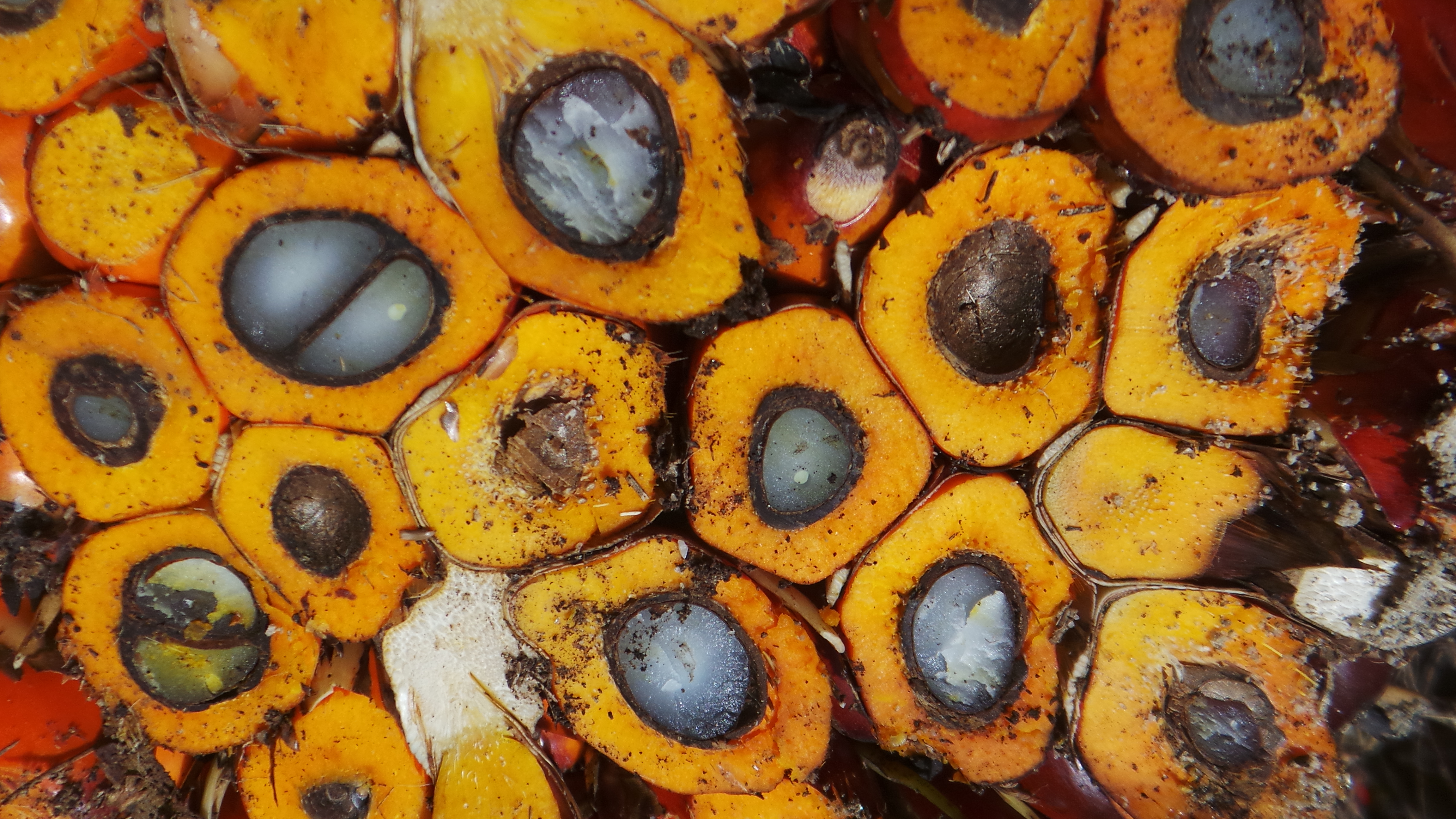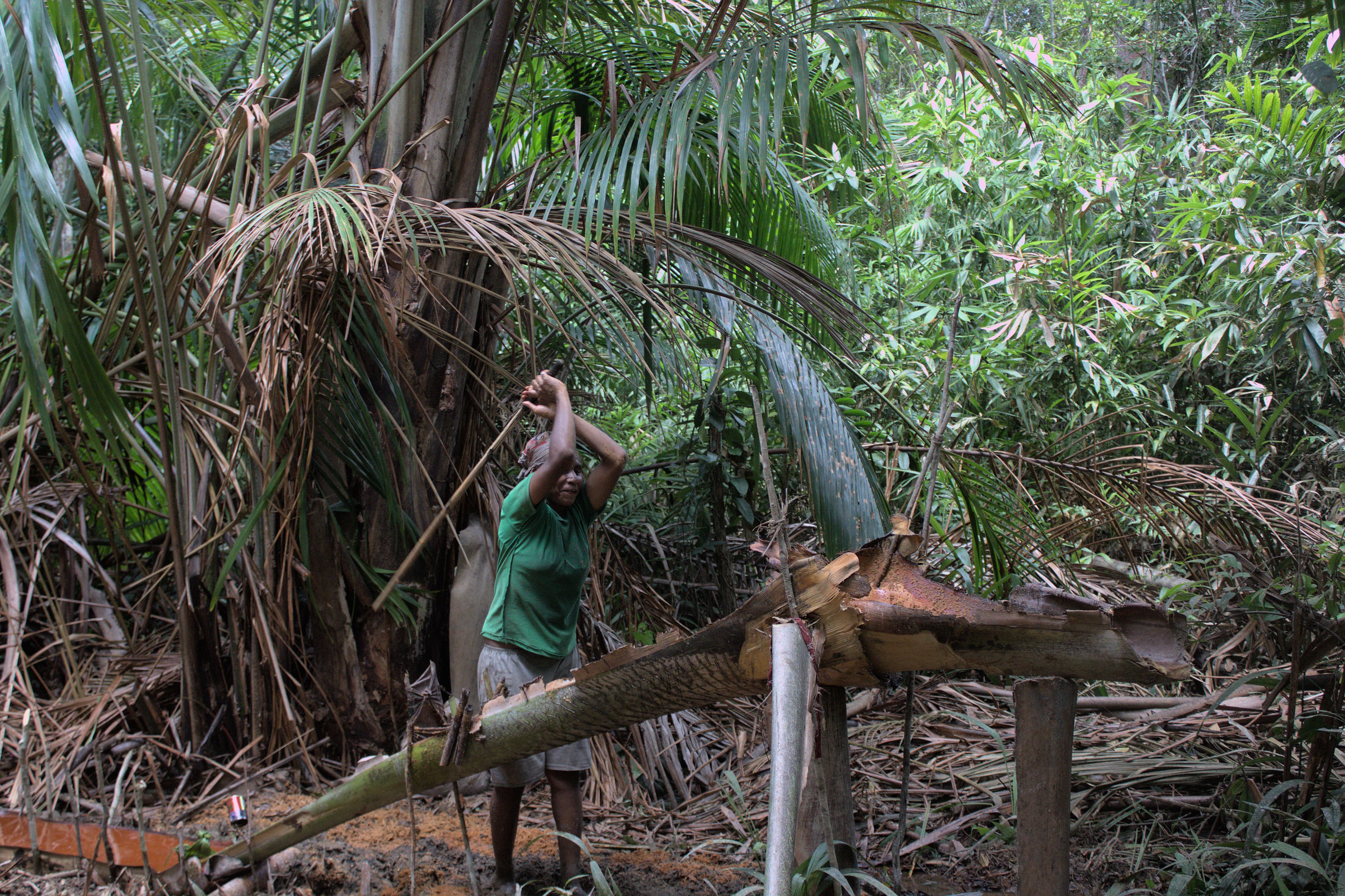Metabolic (in)justice
Sophie Chao04/05/2023 | Reflections

Forest foods like sago derive from plants and animals with whom Marind entertain intimate and ancestral relations of kinship [Image credit: Sophie Chao]
In his seminal scholarship on settler-colonialism and collective continuance, Kyle Powys Whyte argues for the importance of reframing food sovereignty as a matter of justice. Food injustice, conversely, cannot be dissociated from longer histories of imperial violence, incursion, and domination that have progressively undermined communities and collectives. The histories of imperial domination identified by Whyte and others continue to undergird contemporary regimes of racial colonial capitalism that on the one hand, naturalize the unsustainable exploitation of planetary resources and on the other, jeopardize the diet, health, and wellbeing of humans. They further point to the importance of approaching food sovereignty in an intersectional mode, taking into account the social, environmental, racial, and multispecies dimensions of justices. Metabolic (in)justice offers a fruitful analytic for thinking in such an intersectional mode.
To frame justice in metabolic terms draws attention to the dynamics of absorption, ingestion, and transformation that alternately sustain or undermine organismic wellbeing across individuals and collectives. As a distributed mode of connection, metabolism brings into the fold the bodies of the eaters – their organs, cells, and tissues – and the bodies of those eaten – the plants, animals, and ecosystems whose own metabolic activity makes food for humans possible. It conjures an embodied process, distributed across foods, environments, and bodies that are themselves historically constituted, socially shaped, symbolically charged, and affectively mediated. Thinking-with metabolic (in)justice prompts us to interrogate the interface between bodies and worlds across scales and livability across different domains. It offers a conceptual analytic for attending to the uneven intersections and interactions of biopolitical and social life, the human and other-than-human, and the material and semiotic, as these are moved and mediated by differently positioned and privileged guts.

A Marind woman pounding sago, a plant with whom Marind share intimate and ancestral kinship relations [Image credit: Sophie Chao]
In offering the language of metabolic (in)justice, I find primary inspiration in the Indigenous Marind People, whom I have had the great privilege to think with and learn from during ethnographic fieldwork conducted in the Indonesian-occupied region of West Papua. Marind understand relations of eating and being eaten to be anchored in principles of trans-temporal reciprocity and trans-species relationality. Foods Marind procure from native lands derive from plants and animals whom Marind consider as kin (amai) through their shared ancestry from creator spirits (dema) and who must consequently be treated with due respect. This includes, for instance, performing rituals during the hunting and killing of fish and game, singing songs of praise during the foraging of forest tubers and roots, and reciting incantations that story the origins of fruits, seeds, and nuts harvested in the undergrowth. It also encompasses rules surrounding the food procurement activities, that are intended to avoid the over-depletion of any plant or animal resource.
Perhaps most illustrative of Marind’s ethos of metabolic relationality is their concept of “becoming good food for others” (jadi makanan buat yang lain). For instance, the blood of villagers who hunt, fish, and forage in the forest offers nourishment to leeches and mosquitos. Their sweat transfer minerals and salts to the plant life they come into contact with. After death, too, human bodies sustain an array of microbial communities who inhabit the ceremonial graveyards they are buried in. As an expression of more-than-human metabolic justice, becoming good food for others thus entails participating in chains of eaten and being eaten within a more-than-human spectrum whose collective wellbeing depends upon the ability of every organism to inhabit and shift across multiple and interlinked subjectivities–as feeder, fed, and food.
In the last decade, the intimate and ancestral relations of feeding and being fed that Marind traditionally entertained within the forest have been significantly impacted by the conversion of their customary lands into industrial monocrop plantations. Metabolic (in)justice on the Papuan plantation frontier takes the form of top-down land appropriations that occur without the informed consent of Marind communities, and to the detriment of their physical, cultural, and emotional wellbeing. It encompasses the loss of identity and dignity that Marind once derived from nourishing and being nourished by the plants and animals with whom they share the forest. It includes also the impoverished diets of processed goods that corporate representatives and government officials routinely promote as progressive, and civilized, and that come to epitomize the developmentalistic, racist, and paternalistic authority of a government that many West Papuans do not recognize as legitimate.
Metabolic (in)justice in rural West Papua is further exacerbated by the settler-colonial context and global capitalist food systems that plantation frontiers such as the ones inhabited by my Marind companions are embedded within. As many of my friends were quick to remind me, plantation proliferation across their lands is driven in large part by growing demand for vegetable oils and renewable energy sources from overseas including the European Union and United States. The palm oil produced from the theft of Indigenous lands ends up in over half of all supermarket goods across the world, feeding faraway people who are ignorant of the hunger and malnutrition plaguing its sites of cultivation. All of this is happening in turn in an ongoingly settler-colonized world region, where West Papuan movements in pursuit of freedom are violently curbed.
Marind experiences of food insecurity draw into focus a global food production system that is at once profoundly racialized and capitalistic. They speak to the changing lifeways and foodways of an emergent extractive resource frontier, as they connect this frontier to seemingly out-of-the-way places, peoples, and processes to sites and subjects who are also implicated in processes of metabolic (in)justice at national and global scales. In doing so, metabolic (in)justice draws attention to extractive colonial capitalism itself as a form of out-of-control, self-destructive metabolism, driven by the logic of limitless growth and inequitably distributed surplus.
This logic is at once diagnostic and symptomatic of the current Anthropocenic epoch, wherein metabolic processes that sustain life on Earth at a planetary scale are breaking down and generating potentially irremediable metabolic rifts. And yet, still, reified imaginaries of anthropocentrism, compounded with impossibly limitless consumerism, continue to obscure the interdependent webs of relations needed to sustain human and other-than-human life. In the process, we lost sight of the importance of becoming and remaining obligated to, and by, the many beings whose metabolic trajectories intersect with our own.
To consider Marind’s experiences through the lens of metabolic justice thus brings us to reflect on what Jacques Derrida describes as the moral question of how one should eat well [bien manger] in an increasingly vulnerable world. Specifically, it invites us to interrogate critically what powerful forces dictate what goes into which bodies, what counts as food, when food means life, and who or what becomes the eater and eaten. It demands that we center impurity and non-innocence as defining factors of contemporary food systems and attendant regimes of nutritional structural violence. And it calls on us to collectively fashion foodways that are grounded in the premise and promise of more-than-human metabolic justice.
Sophie Chao is Discovery Early Career Researcher Award (DECRA) Fellow and Lecturer in the Discipline of Anthropology at the University of Sydney. Her research investigates the intersections of Indigeneity, ecology, capitalism, health, and justice in the Pacific. Chao is author of In the Shadow of the Palms: More-Than-Human Becomings in West Papua and co-editor of The Promise of Multispecies Justice. Chao is of Sino-French heritage and lives on unceded Gadigal lands in Australia. For more, see www.morethanhumanworlds.com.
Marind experiences of food insecurity draw into focus a global food production system that is at once profoundly racialized and capitalistic. They speak to the changing lifeways and foodways of an emergent extractive resource frontier, as they connect this frontier to seemingly out-of-the-way places, peoples, and processes to sites and subjects who are also implicated in processes of metabolic (in)justice at national and global scales. In doing so, metabolic (in)justice draws attention to extractive colonial capitalism itself as a form of out-of-control, self-destructive metabolism, driven by the logic of limitless growth and inequitably distributed surplus.
This logic is at once diagnostic and symptomatic of the current Anthropocenic epoch, wherein metabolic processes that sustain life on Earth at a planetary scale are breaking down and generating potentially irremediable metabolic rifts. And yet, still, reified imaginaries of anthropocentrism, compounded with impossibly limitless consumerism, continue to obscure the interdependent webs of relations needed to sustain human and other-than-human life. In the process, we lost sight of the importance of becoming and remaining obligated to, and by, the many beings whose metabolic trajectories intersect with our own.
To consider Marind’s experiences through the lens of metabolic justice thus brings us to reflect on what Jacques Derrida describes as the moral question of how one should eat well [bien manger] in an increasingly vulnerable world. Specifically, it invites us to interrogate critically what powerful forces dictate what goes into which bodies, what counts as food, when food means life, and who or what becomes the eater and eaten. It demands that we center impurity and non-innocence as defining factors of contemporary food systems and attendant regimes of nutritional structural violence. And it calls on us to collectively fashion foodways that are grounded in the premise and promise of more-than-human metabolic justice.
Sophie Chao is Discovery Early Career Researcher Award (DECRA) Fellow and Lecturer in the Discipline of Anthropology at the University of Sydney. Her research investigates the intersections of Indigeneity, ecology, capitalism, health, and justice in the Pacific. Chao is author of In the Shadow of the Palms: More-Than-Human Becomings in West Papua and co-editor of The Promise of Multispecies Justice. Chao is of Sino-French heritage and lives on unceded Gadigal lands in Australia. For more, see www.morethanhumanworlds.com.
Published: 04/05/2023
